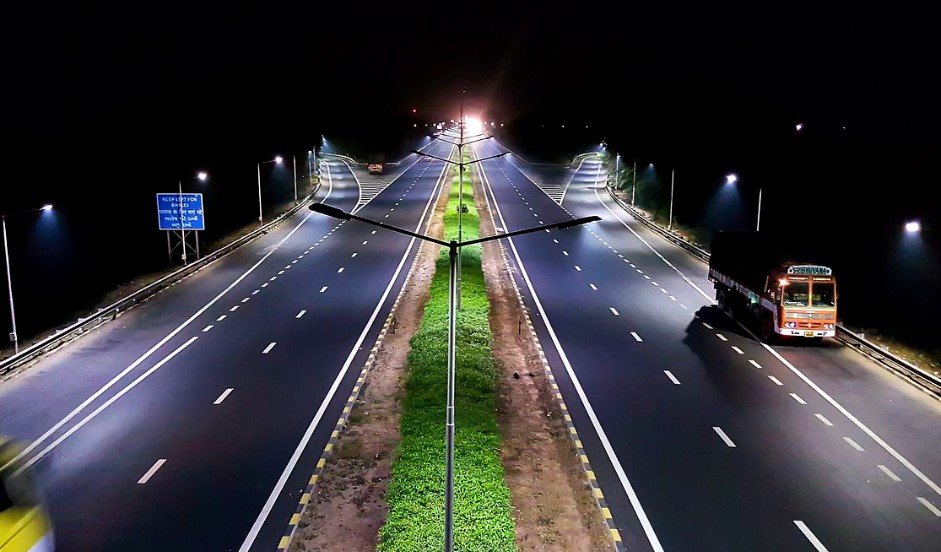Landmark ruling holds drivers accountable for abrupt halts that endanger others, even in emergencies
In a ruling that could reshape how road accidents are judged across the country, the Supreme Court has declared that a driver applying sudden brakes on a highway without warning can be held negligent — even if the stop was due to a personal emergency.
The decision, delivered by a bench of Justices Suddhanshu Dhulia and Aravind Kumar, stems from a 2017 accident that left a young engineering student permanently disabled. The court said highways demand higher standards of caution, and an unannounced stop in the middle of fast-moving traffic can’t be excused lightly.
One Moment, One Mistake — A Life Changed Forever
It was January 7, 2017. S Mohammed Hakim was riding his motorcycle on a stretch of highway in Coimbatore.
He never saw it coming.
A car ahead of him suddenly stopped — no signal, no brake lights, no visible reason. Hakim’s bike slammed into the rear of the vehicle. The impact crushed his leg so badly, doctors had no choice but to amputate. His life took a turn that no 21-year-old could have prepared for.
Years later, it wasn’t just his legal case that reached the highest court — it was a bigger question: can a personal emergency justify endangering others on a public highway?
The court’s answer was clear: no.
Judges Emphasize Responsibility on High-Speed Roads
Justice Dhulia, writing the verdict on behalf of the bench, made it unambiguous.
“On a highway, high speed of vehicles is expected,” he said. “If a driver intends to stop his vehicle, he has a responsibility to give a warning or signal to other vehicles moving behind on the road.”
The court acknowledged that emergencies happen. But it drew a firm line — if that emergency creates a new danger, the driver has to take precautions.
Justice Aravind Kumar added, “The duty of care doesn’t vanish just because you’re in distress. You can’t transfer the risk to others.”

What This Means for Motorists Going Forward
The ruling has wide-ranging implications. It could alter how accident liabilities are calculated, especially on national highways and expressways. Insurance claims, criminal negligence charges, and compensation payouts might all be affected by this precedent.
A few likely outcomes of the verdict:
-
Drivers stopping suddenly on highways may face stronger liability charges
-
Courts can treat unannounced halts as negligence, regardless of personal reasons
-
Insurance companies may revisit terms for coverage involving such accidents
-
Two-wheeler riders and truckers get a new legal avenue in rear-end collision cases
Essentially, the verdict pushes for predictability on highways — where every second counts, and every blind spot can cost a life.
A Grim Reminder of India’s Highway Hazards
India’s roads claim over 150,000 lives every year — that’s nearly 400 people every single day. A large chunk of these deaths occur on highways, where high speeds and poor judgment often collide.
Rear-end collisions, in particular, are both common and deadly. According to Ministry of Road Transport and Highways (MoRTH) data from 2023, over 16% of fatal road crashes involved vehicles ramming into the rear of another.
In 2022, the National Crime Records Bureau (NCRB) had reported:
| Type of Road Accident | Number of Cases | Fatalities |
|---|---|---|
| Rear-End Collisions | 56,000+ | 19,000+ |
| Sudden Stop Without Warning | Estimated 8,000 | 3,000+ |
| Overall Road Accidents | 455,000+ | 155,000+ |
Sudden braking — often because of a missed exit, phone distraction, or confusion — is a known risk factor. But until now, legal accountability for such incidents was murky.
This verdict clears the fog.
Public Reactions and Legal Community Weigh In
While road safety experts welcomed the judgment, reactions from the legal fraternity were mixed.
Senior advocate Anupama Bhattacharya called the ruling “a reality check” for reckless drivers. “You can’t just stop in the middle of a highway and expect sympathy. It’s a shared space — rules matter.”
On the other hand, some argued the ruling may open a floodgate of litigations where emergencies were genuine but poorly handled. “Will courts now judge what counts as an ‘acceptable’ emergency?” one lawyer questioned.
Social media, unsurprisingly, had its say. Hashtags like #HighwaySafety and #SCVerdict began trending by Thursday afternoon. Victims of past accidents came forward, sharing stories of how sudden stops had wrecked lives.
The Verdict’s Echo Beyond Coimbatore
For Hakim, the ruling isn’t just legal relief — it’s validation. Years after the accident that upended his future, he now has the highest court in the land saying what happened to him wasn’t just misfortune. It was negligence.
The judgment sends a clear signal: Personal urgency does not override public responsibility.
As Indian highways become faster and more crowded, the cost of a mistake becomes heavier. The Supreme Court’s message is loud: Use your brakes wisely — or be prepared to answer for it.
